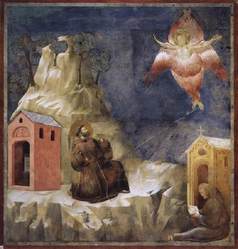|
This past weekend, I had the honor of attending a beautiful wedding for a couple I have known since my freshman year in college. The two had a lovely Mass followed by a fun reception, and many college-friends and family were there to celebrate them. These two were not the first couple I’ve seen get married this year, and they won’t be the last - in fact, I have 4 more to attend in the next year already! It all got me thinking about how these men and women are such amazing examples of love and devotion for those of us around them.
As millennial Catholics, we have many people to influence us or to learn from, especially in this digital age of constant communication. Our peers who are getting married set a new model for us to follow. These peers are examples of commitment and true love, and are models for us as we discern our own vocation in life. Sometimes, it seems like “everyone” is getting married, and it’s “cool” to have a perfectly Pinterest-ed wedding. We also get pressure from others who note that “It’s that time in your life”. But, there is so much more to the sacrament of marriage than having a trendy reception in a fancy venue. The example of love that we see from those around us can help us look deeper at the love that we, too have with others. Marriage at any age is a testament to the selflessness and devotion that one person gives to someone else. In the midst of a culture built on so much focus on the individual, it is joyful and inspiring to me for to see so many people devote themselves to another person and to God through the sacrament of Holy Matrimony. But it doesn’t stop there! People who are not married, engaged, or still dating still also can follow the example of love given to them by their peers by focusing on their love of God and strengthening their bond and relationship with Him. The single life can be even more of a beautiful and fruitful time for those who serve the Lord. It is a time to build a stronger prayer life, spiritual life, and overall well-being. Discerning the will of God has always been a struggle for people, for instance in Romans 12: 1-2, 9-13, Saint Paul asks the Romans to be selfless and good in their daily lives, his letter still speaks to us today, saying: "I urge you, brothers and sisters, by the mercies of God, to offer your bodies as a living sacrifices, holy and pleasing to God, your spiritual worship. Do not conform yourselves to this age but be transformed by the renewal of your mind, that you may discern what is the will of God, what is good and pleasing and perfect. […] Let love be sincere; hate what is evil, hold on to what is good; love one another with mutual affection; anticipate one another in showing honor. Do not grow slack in zeal, be fervent in spirit, serve the Lord. Rejoice in hope, endure in affliction, persevere in prayer. Contribute to the needs of the holy ones, exercise hospitality.” Millennials like myself are always trying to change things and improve on the old, so this should be an easy task for us: build-on and improve our prayer life and relationships with God. Let us try to find a new and more invigorating way of serving God and others! While many are called to marriage when they answer their own vocation call, others may try a path of holy orders or religious life to improve their personal relationship with God, and still more may just remain open to God’s will for them in their lives each day. Krissy Kirby is a teacher for the Archdiocese of Washington, D.C.
0 Comments
Today, the largest pro-life movement in the world will occur as thousands march the National Mall in Washington, DC, peacefully and passionately for the sake and sanctity of human life. Every year, the March for Life occurs on the anniversary of the historic Roe v Wade decision that made abortion legal in all 50 states. Despite the sorrow that fills the memory of this day, we have been called, as a community of life, to stand with zeal (word choice) for everyone’s right to life, not just this day, but every day of our lives.
I have never participated in the March for Life before, but I am very excited to finally take part in some of the activities that are occurring this week in our nation’s capital. From hosting eager pilgrims coming from Texas to march, to pro-life talks and dinners, and the National Prayer Vigil for Life, it has been an inspiring week so far. The pro-life community is strong and vibrant and it is a joy to be a part of that spirit. However, as I’ve been reflecting on the meaning and beauty of this week, I am realizing the vital call that is bestowed upon us to witness the beauty of life every day of our lives. During this week and beyond, we must take the time to see the value in every life and how we can share that with others. I want the world to know that the beauty of life is all around us: the young, the old, the rich, the poor, and those in-between. It is in those risking their own life for the sake of others. The beauty of life is all around the world in different races, cultures, and experiences. The beauty of life is in the day to day interactions of our community, at home, work, and school. The beauty of life is in experiencing nature. The beauty of life is in sharing our own lives with others. Most vividly, as Catholics we know that the beauty of life exists in the Church, as Jesus Christ who teaches us how to love perfectly: “No one has greater love than this, to lay down one’s life for one’s friends” (John 15:13). To love perfectly is truly selfless. Those committed to a culture of life live as selfless witnesses, caring for the sanctity of each human soul through love. In our culture where instant pleasure and satisfaction are the façade for human happiness, we must teach others that there is authentic joy in protecting and standing for those who may not have a voice of their own. So many have come before us and instructed us in Christ's example, in the way of life. Blessed Mother Teresa, who devoted herself to the Cross by serving Christ in the slums of India said, “Any country that accepts abortion is the poorest of the poor” and that, “Human rights are not a privilege conferred by government. They are every human being’s entitlement by virtue of his humanity. "Not only as Americans, but as faithful citizens of the kingdom of God, we are called to protect the preciousness of every life created by God. These thoughts are my prayers, especially today, as we reflect on the Right to Life, particularly that America and our world will come to embrace a culture of life for all peoples, and I hope that you will live these prayers with me wherever you are marching. Whether you are in our nation’s capital today, at home, or at a march in spirit, know that your witness matters and is essential to stamping out a culture of death and living a culture of life. In order to bring life to the world, we must live in love. Let us ask God to bless this week that He may touch the hearts of many who need to hear his words of love and mercy, and that together we can increase the culture of life. Alyce Anderson is a teacher in Washington D.C. In Brooklyn, New York in 1951, in the second grade at Saint Teresa of Avila School, I committed to memory Question Six and its answer from the Baltimore Catechism, “Why did God make you?” “God made me to know, love, and serve Him in this world, and to be happy with Him forever in the next.” Although advanced to a much nuanced position, my mind has not changed, but has been greatly challenged. We have not lived in a culture premised on the answer being true. I also memorized Question Ten and its answer, “How shall we know the things which we are to believe?” “We shall know the things which we are to believe from the Catholic Church, through which God speaks to us.” I have been pondering this question and its answer for sixty-two years. This answer is still true for me. From the Catholic Church I have learned the things which we are to believe. Do we not live in a culture, even within the Church, that does not ask the question? Thus, the disappearance of the answer!
Every morning we recited the pledge of allegiance, although “under God” was not added until 1955. America was a good place to which I could pledge allegiance. Yet I did not believe in America. Allegiance and belief differ. Belief is more important than allegiance. This judgment places America’s goods within the goodness of God. Without that goodness, America’s goods were not as good as they could be. Without that goodness of God, an American catechism would instead ask: “Why were you made?” “I was made to be happy and flourish in this country, and to help others be happy and flourish before we all die.” For the second question, “How are we to know the things we need to know?” “We shall know the things we need to know from the schools and social media of the American culture of secularity.” Of course, in America we have the private option to believe what the Catholic Church teaches. However, we must respect those who don’t take this option, and we must be careful when we act on this belief, lest we interfere with the others or give them offense. Increasingly, we are asked not to say anything, or to keep it to ourselves. This is unsatisfactory for Catholics. We have become the resident aliens. We have a problem with culture! Deacon Daniel Sheridan, Ph.D is a Professor of Theology at Saint Joseph’s College of Maine and former Director of the Online Theology Program. This blog post was first published earlier today on the St. Joseph’s College of Maine Theology Faculty Blog. Click here to learn more about our cooperative alliance with St. Joseph’s College Online My girlfriend watches Grey's Anatomy. I must admit, I am not a fan of the show, but I was in the room this week when she was watching an episode. Even though I was doing work, and I am almost incapable of multi-tasking, one of the characters caught my attention: the Cat Man. When he was a teenager, the Cat Man had many surgeries to turn his face and hands into forms that resembled today's common feline. He had done it because he thought it resembled who he was. He was trying to find meaning. Now, however, when he looked in the mirror, all he saw was shame and regret. He was alone, broken, and desperately seeking a way out.
As we begin this Lenten journey tomorrow, I find myself laughing at the use of such an extraordinary TV character as a segue into this most holy time of year. But Lent is a time when we, too, look into the mirror. We examine our actions, choices, and relationships. In today's culture, which requires success, money, vanity, and friends for self worth, the mirror can be a terrifying thing. So many look and see only brokenness from sin and the imperfections of this world. They see only hopelessness. Yet hopelessness is the opposite of what this season is all about. This reflection, this time of fasting, prayer, and almsgiving is not meant to rub our faces in our brokenness. It is meant to show nothing less than the transformative and salvific power of the love of God. In Lent, we come before Christ again, and prepare our hearts to receive and experience the Paschal Mystery. And when we do that, when we turn back to the one who created us, we see the image of God in us. Yes, Lent is when we look into the mirror. And since we are created in God's image, it is a time when we look and see if our lives reflect the sacred beauty that is in us. We ask how can we be more like Christ, more like the one who made us, more like ourselves. Because in the end, becoming more of who we are is what God wants us to do. God created each of us, and if we continually try to be ourselves to the fullest as Jesus showed with his life, ours will be filled with beauty, joy, and fulfillment. Look into the mirror. Do not be afraid. Look and see the beauty waiting to shine forth. Be sure to check out the Catholic Apostolate Center's Lenten resources, by clicking here. Brian Niemiec is the Curriculum Consultant for the Catholic Apostolate Center Each of us can likely recall a short list of places in which the Lord has spoken to our hearts in a special way. A Eucharistic adoration chapel; one of my favorites, a beach town in the winter; a faraway mountaintop; or even a simple social hall can all be places of encounter with the Triune God. What is one such place for you?
My faraway mountaintop place of encounter with God can be found in Tuscany, three hours north of Rome on the Monte della Verna. This is a sanctuary, now in the care of the Order of Friars Minor, where on this day—September 17, 1224—Saint Francis received the Stigmata, the physical wounds of Christ Himself, on his hands and feet. The place is reached by a switchbacking road—up, up, up you go! The place is impressive for its almost startling peacefulness, a felt reality that this is a place where God is—IS, for sure—you know it, you can sense it from the moment you step off the bus. La Verna's indelible mark on my own heart comes from one Source—the action of the Holy Spirit, felt and experienced during a brief visit nine years ago. These encounters in awesomely holy places must encourage us to run after Jesus and to place ourselves on the Emmaus Road, so to meet Him there. Pope Francis has spoken several times of the need for a "culture of encounter" as a foundation for peace and real justice in the world. The first place where this culture begins, I argue, is our own hearts. If what our Lord Jesus says in the Sermon on the Plain is true—"From the fullness of the heart the mouth speaks" (Luke 6:45)—we need encounters with the Lord to fill and shape our hearts, thus to be kind in our encounters with others. Saint Francis' life of encounter with Christ reached a pinnacle in the Lord impressing His own wounds upon Francis' person. You or I might never receive the physical wounds of Christ in our own hands or feet, but we can foster the culture of encounter in our own life of prayer. Ministering and witnessing out of the overflow from our hearts will help build the Kingdom of God on earth! Patrick Finn serves as Communications Director for the Black and Indian Mission Office in Washington, D.C. To promote real change, we must start with ourselves. Cultivating a culture, especially one contrary to what’s popular, requires education and conversion, beginning with those who cultivate. If we are to teach others, we must first put our best efforts into rooting ourselves in these truths. For me, it’s about a God-centric, and love-centric lifestyle. Cliché as it may be, above all things I believe in love. For many, including myself, this is a mission, an answer to a calling; a passion, a core-belief and a lifestyle.
This week, Yale University is holding a series of events organized under the title “Sex Week.” This has been taking place since 2002; however the University banned it last year stating that had created a “hostile sexual environment for women.”[1] Some may think given this assessment that the door had closed for good, but a few weeks later the decision was reversed. The goal of Sex Week is supposed to be sexual education, and an opportunity to “discuss sex openly.”[2] Another group on campus decided to provide an alternative to Sex Week, sponsoring talks and activities of their own because they believe Sex Week inappropriately emphasizes “sheer, gratuitous and physical pleasure.”[3] I know this may sound like a sharp critique of a program that sponsors the event “Work It: Founder of Babeland Sex Toys talks about Queer-Friendly Business and Pleasing Women”, but hear me out. One area that I have devoted much of my time and study to is John Paul II’s Theology of the Body and overall call to chastity and sexual dignity. A topic many young adults avoid, I see it as absolutely vital not only for my character, but also for my faith journey and ultimately my vocation. The idea that our bodies can have a specific purpose in and of themselves is not a widely accepted idea in current society, never mind on a college campus. Although many dating couples claim to be unconcerned about the permanence of their relationship and immune to the adverse consequences of their actions, sex for such couples introduces an exclusively physical bond that is illusory, disordered and devaluing of the gift of total intimacy. It is possible for a wide variety of people to agree that it is easy for us to mistake physical intimacy for love. This is a logical idea because physical intimacy has a unifying power, which is one of the attributes of love. The problem lies in the fact that lust also has a tendency to draw two people together, and this counterfeit intimacy can be difficult to distinguish from the real thing.[4] This is not to say that the lack of chastity as a core value causes all relationships to deteriorate into lustful encounters, but rather that the likelihood of a couple being able to accurately assess the worth and sincerity of a relationship is less. When a couple is dating, it is love that they seek. As stated in the Catechism, Catholics believe that “either man governs his passions and finds peace, or he lets himself be dominated by them and becomes unhappy.”[5] It is often the case that a person’s intentions become masked by desire, usually of a sexual nature, and that is where chastity comes into play. Supporters of Sex Week have criticized the founders of True Love Week for having a “narrow minded view of sex” and “encouraging marriage” rather than providing ‘sexual education.’[6] While sex is pleasurable, it maintains greater importance than pleasure. Most couples do not deliberately use each other, but sometimes the objectification that ensues is unconscious. Though this is not a constant with every couple, pop culture and magazines, like Cosmopolitan, “urge people to take the sexual pleasure that’s due them”[7] creating an environment that praises such activity. This might be why Sex Week never assumes any of its participants are in any sort of committed relationship. However, the fact remains that the act of sex between two people creates a bond dissimilar to that of any other. When two people choose to promote and express their romantic affection or “love” through fornication, the trivialization of human sexuality and its virtue is present. Christopher West, who has written several books on theology of the body, describes this as “telling lies with the body”. In sex, the body is saying, “I give myself to you freely, totally, faithfully, and fruitfully”… Sound familiar? If you’ve ever been to a wedding, you’ll recognize those lines from traditional wedding vows. In marriage, God enables humans to use their bodies to create a love that is more than just the sum of their parts. By enjoying the expression of full love without giving full love, and accepting the commitment and sacrifice, the couple wounds the relationship and one another. In the words of Pope John Paul II, “Only the chaste man and the chaste woman are capable of true love.” By keeping the focus and order of dating relationships on happiness, couples come to discover that sacrificial love brings true joy. Where there is selfishness, there is no love. Taking into account the intrinsic truths of sexual bonding, properly tempered desires, and a proper understanding of the value of a full gift of self is necessary even for couples neglecting to acknowledge their damaging present actions in order to prepare for a potentially permanent and unitive future. To reiterate, I understand these are not popular views, and the ideas and facts I have presented may provoke less excitement than a sex toy exhibition. However, nothing short of “til death do us part” would be making any of Sex Week’s agenda relevant to this university student. In fact, some of it will never apply to me, and that’s okay with me. I know what God’s love looks like and it’s because of this that I know my own worth and dignity as a woman. This is the love that’s worth defending, and certainly worth waiting for. Angela Chiappetta is the Program Development Associate for the Catholic Apostolate Center. [1] http://www.thecollegefix.com/post/10123 [2] http://www.yaledailynews.com/news/2012/feb/02/true-love-week-provides-alternative-to-sex-week/ [3] http://www.yaledailynews.com/news/2012/feb/02/true-love-week-provides-alternative-to-sex-week/ [4] Evert, Jason. If You Really Loved Me. Ann Arbor, MI: Charis /Servant Pub., 2003., 62 [5] Catechism of the Catholic Church. Liguori: Liguori Publications, 1994. §2339 [6] http://www.yaledailynews.com/news/2012/feb/02/true-love-week-provides-alternative-to-sex-week/ [7] Eden, Dawn. The Thrill of the Chaste: Finding Fulfillment While Keeping Your Clothes On. Nashville: Thomas Nelson, 2006. 2 I recently had the opportunity to attend the Fellowship of Catholic University Students (FOCUS) Student Leadership National Conference at the invitation of one of our campus FOCUS missionaries. The distinguishing feature of this conference was that it was geared toward student leaders with a special emphasis on equipping those present for engaging in the New Evangelization.
Curtis Martin, the founder of FOCUS kicked off the weekend with a roll-up-our-sleeves and get to work talk that laid out the mission before us. He painted the bleak reality, presenting the Catholic population of the United States. Although 77 million strong, research has found that only about 22% attend mass on a weekly basis and even fewer support the Church’s teaching on procreation and life as found in Humane Vitae. However, Curtis’s call to action urged us as active members of the Church’s young adult laity to help increase this small but powerful number of Catholics. It’s not enough to simply increase the existing 77 million, rather we need to take the 77 million and, through evangelization, help to form new apostles who are more learned in – and ready to spread – their faith. This is all well and good, we may say, but that’s a lofty goal even for the average engaged Catholic layperson. Therefore, it’s good to understand this entire New Evangelization movement. Many of us are familiar with the term evangelization but not exactly sure what makes it “New.” Fr. Michael Keating shared three thoughts explaining precisely why this New Evangelization is just that… “New.” First, we must understand this as a re-evangelization that is rather new in the light of the entirety of Church history. The Church has been evangelizing since Christ himself walked the earth, but this concept of revisiting those who have heard the Gospel message and in return have either grown indifferent toward it or outright rejected it, can prove much more difficult. As C.S. Lewis once said, “It’s the difference between a man attempting to woo a young maiden and a man attempting to reanimate a relationship with a cynical divorcee,” which, unfortunately, aptly describes the challenge before many of us. Secondly, Fr. Keating noted that this evangelization has to happen in a different context than it has throughout history because the Church is no longer mainstream. Throughout the centuries, evangelization was made easier because the teachings of Christ permeated the culture and the very way that people lived their lives. In the span of Church history, this is considered a very “new” problem. Lastly, the moral and human truths the Church teaches have never before been under attack as they are now. Some of these are direct attacks and others are more subtle, as they have existed in our culture for many decades and have now became mainstream. The only way to help turn this around and face these new challenges head on is through building and promoting a culture in which the moral truths and teachings of the Church are promoted. Fr. Keating emphasized this change, saying that the deciding factor of the success of the New Evangelization through this change of culture lies within the very source and summit of everything we are as Catholics – the Mass. Our ability to be engaged in the Mass and submit ourselves to the liturgy so that it may form us needs to be our primary concern in building ourselves as apostles. It is in the Mass that we are united with all of our brothers and sisters in Christ, including all the saints who have gone before us. We should use the saints as examples of how to be evangelizers, and they should serve as our inspiration in our task ahead. Jesus didn’t choose the most talented or skilled rhetorical speakers to be his apostles – take Peter and Andrew who we recently heard about in the Gospel reading. They weren’t scholars of the ancient Jewish law or customs – just fishermen. Yet it all started with them and ten other humble apostles as they evangelized throughout the lands and, as St. Paul writes to the Corinthians, “my message and my proclamation were not with persuasive words of wisdom but with a demonstration of spirit” (1 Cor 2:4). This is certainly reassuring to someone like myself, who is no theologian and writing a blog post on the Church. But, perhaps, that’s just how God intended to use me. And perhaps He is just waiting to use you, too. David Burkey is Communications Coordinator for the Catholic Apostolate Center. |
Details
Archives
July 2024
Categories
All
|
About |
Media |
© COPYRIGHT 2024 | ALL RIGHTS RESERVED






 RSS Feed
RSS Feed